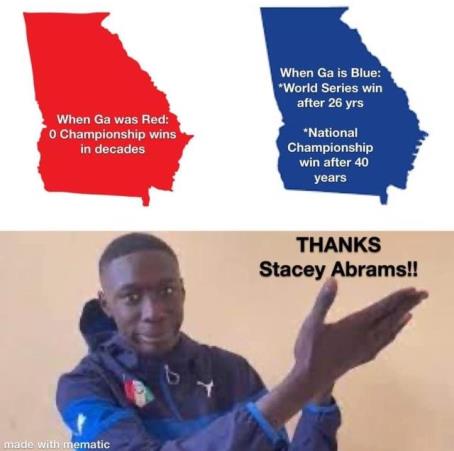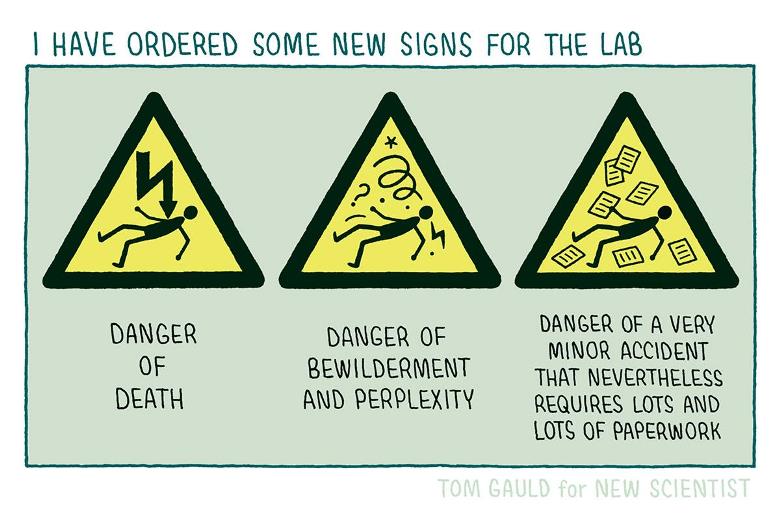![]()
![]()
from Bruce
Anecdotes
Theater
• Lennox Robinson, an Irish actor-manager, once auditioned a middle-aged woman who wished to be an actress. She spoke a few lines from the “quality of mercy” speech by Portia in Shakespeare’s Merchant of Venice, then said, “I think I’d do better without me teeth,” removed her teeth, and finished the speech. According to Mr. Robinson, “Auditions can sometimes be trying; one does not always discover genius.”
• Harley Granville-Barker was very sparing in giving praise as a theatrical director. When he was directing John Gielgud in King Lear, he would sometimes say, “You did some fine things today in that scene. I hope you know what they were.” Then he would give Mr. Gielgud a long list of the things he had done wrong!
• Lilian Baylis’ theatrical company was once invited to perform in the open air at Elsinore. Unfortunately, it rained and rained, and Ms. Baylis, who was always very concerned about her company, went to the door of her hotel, looked out at the rain, and then said indignantly, “This will have to stop.”
• While playing in the poor play Alice’s Boys, Sir Ralph Richardson once went to the front of the stage and asked, “Is there a doctor in the house?” After a man stood up and identified himself as a doctor, Sir Ralph asked him, “Doctor, isn’t this a terrible play?”
Transplants
• As Christmas 2009 drew near, Dawn Pflughaupt, age 37, was happy because she was cancer-free. A bone marrow transplant with her brother, Brock Pflughaupt, as donor cured her leukemia. She had found out that she had leukemia after feeling ill. Dawn said, “I had bruises and was tired, but I thought that was from working in the automotive industry.” She worked for Chrysler in Sedalia, MO. She went to the hospital and was at first diagnosed with a viral infection, but soon she received a telephone call. She said, “They told me I might bleed out if I didn’t come to the hospital.” That was when she learned that she had leukemia. One bad thing was that she had not spoken with most members of her family for over a decade, the result of some bad life choices that resulted in a prison term for her for selling marijuana. She said, “I was a good kid gone bad. I was on the wrong path, and I thought I was big, bad, tough, and strong.” However, Brock, her brother, kept talking to her. She said, “He was always checking up on me, and he always let me know when there was a graduation or wedding.” Her father had died in 2005, but the other members of her family rallied around her. Dawn said, “That was hard: Knowing I was sick and I never talked to him before he died.” She began chemotherapy and radiation treatments. Her sister, Tara Wolfe, stayed by her side. Dawn said, “We rekindled our relationship, and Tara dropped everything to be with me.” Tara volunteered to be a bone-marrow donor for Dawn, but she was not a match. Things were going badly for Dawn, who said, “It was rough and hard. I had no immune system, and I was crying blood and delusional.” Brock then volunteered to be a bone-marrow donor for her. Dawn said, “Brock and I are like twins, as much as we look alike.” He was a 99.98 percent match, the transplant took place, and it cured Dawn’s leukemia. Before the transplant took place, Brock endured a series of injections that turned his platelets into white blood cells. Dawn said, “He was so stiff and sore. He was walking around like the Michelin Man.” She added, “He’s my hero.” Dawn and Brock’s mother, Jacqui, said, “I’m not one bit surprised by my son’s actions. It’s in his DNA.” She added, “His father would be so proud.” Brock said simply, “That’s just what family does.” Dawn is now cancer-free: “There are no words to describe how I feel. All I can do to thank Brock is appreciate life and live it to the fullest.” The family members are now close. Jacqui said, “Families have ins and outs. Sometimes God taps you on the shoulder, and sometimes He takes a baseball bat to the side of your head. We got the baseball bat.” Brock registered for the National Bone Marrow Registry. He said about donating his bone marrow, “It hurt, but it won’t deter me from donating again.”
***
© Copyright Bruce D. Bruce; All Rights Reserved
***
Be a Work of Art — Buy
Be a Work of Art — Buy The Paperback
Be a Work of Art — Buy Kindle
Be a Work of Art — Buy Apple
Be a Work of Art — Buy Barnes and Noble
Be a Work of Art — Buy Kobo
Be a Work of Art — Buy Smashwords: Many Formats, Including PDF
Presenting
Michael Egan









 In memory.
In memory.


BRUCE'S RECOMMENDATION
BANDCAMP MUSIC
BRUCE'S RECOMMENDATION OF BANDCAMP MUSIC
Music: "Lost in the Shadows"
Album: ROCK ME OUT!
Artist: The Verbtones
Artist Location: Portland, Oregon
Info:
“Established 2001. Instrumental Surf, Garage, Fuzz, Psychedelic, Rock, Sunshine Pop, Baroque Pop, Alternative and beyond.”
“Steve Lewis on drums. Kyle Alaniz on guitars, bass. Steve King on guitar. Tom Wheatley on bass.”
Price: $1 (USD) for track; $9 (USD) for 11-track album
Genre: Surf
Links:
ROCK ME OUT!
The Verbtones on Bandcamp
Tom Wheatley (Verbtones Bass Player) on YouTube
The Verbtones on YouTube (Topic)
Other Links:
Bruce’s Music Recommendations: FREE pdfs
David Bruce's Amazon Author Page
David Bruce's Smashwords Page
David Bruce's Blog #1
David Bruce's Blog #2
David Bruce's Blog #3
David Bruce's Apple iBookstore
David Bruce has over 140 Kindle books on Amazon.com.

Reader Suggestion
Michelle in AZ

David E Suggests
Threefer



Bonus Links
Jeannie the Teed-Off Temp

Reader Comment
Current Events









Linda >^..^<
We are all only temporarily able bodied.
Thanks, Linda!


that Mad Cat, JD

In The Chaos Household
Last Night
Running late.

Gershwin Prize
Lionel Richie
Lionel Richie will be honored all night long for his musical achievements.
The Library of Congress said Thursday that Richie will receive the national library’s Gershwin Prize for Popular Song. He will be bestowed the prize at an all-star tribute in Washington, D.C., on March 9.
PBS stations will broadcast the concert on May 17.
Past recipients include Stevie Wonder, Paul McCartney, Billy Joel, Willie Nelson, Smokey Robinson, Tony Bennett, Emilio and Gloria Estefan and Garth Brooks.
Lionel Richie

Selective Editing
![]()
ABC News
ABC News is under fire for its editing of a “Good Morning America” interview with CDC Director Rochelle Walensky that created uncertainty that’s being exploited by vaccine critics.
The interview was seized upon by figures like Donald Trump Jr., Tucker Carlson and Laura Ingraham to imply the Biden administration has been lying to the public about the importance of vaccines.
The network remained mum on Thursday about the controversy. However, experts say ABC News has a responsibility to talk to viewers about what happened and why, to prevent misinformation from spreading further.
In the interview on Friday, Cecilia Vega asked Walensky about the “encouraging headlines” surrounding a study that showed how well vaccines worked to prevent severe illness. The Centers for Disease Control and Prevention director began by summarizing some of the findings.
But ABC edited out the summary, about 20 seconds of her answer. That made it appear that Walensky began by saying: “The overwhelming numbers of deaths, over 75%, occurred in people who had at least four comorbidities, so really these were people who were unwell to begin with.”
ABC News
Sequel Pilot Greenlit
‘Quantum Leap’
The possible return of Quantum Leap is taking a big step forward at NBC. The network has greenlit the sequel pilot to the 1989 time-travel adventure-drama that ran for five seasons on the network.
The synopsis reads, “It’s been 30 years since Dr. Sam Beckett (Scott Bakula) stepped into the Quantum Leap accelerator and vanished. Now a new team has been assembled to restart the project in the hopes of understanding the mysteries behind the machine and the man who created it.”
The description makes it sound like original series star Bakula is on board. Nothing is official, but per sources, the actor may be involved.
Creator Don Bellisario is on board for the revival as executive producer. Steven Lilien and Bryan Wynbrandt (Gotham) are showrunners. Deborah Pratt and Martin Gero are also executive producers. The project is for series consideration next year and produced by Universal Television.
‘Quantum Leap’

10 Billion Views
'Baby Shark'
No, you still can't escape "Baby Shark." Billboard reports Pinkfong's so-catchy-it-hurts children's song has become the first video to reach 10 billion views on YouTube. And no one is likely to catch it any time soon — Luis Fonsi's "Despacito" video, which "Baby Shark" overtook as the most popular video in November 2020, has managed 'just' 7.7 billion views as of this writing.
The 2016 tune's familiar (if very repetitive) hook is certainly part of its success, but it has also been helped by returning to popular culture over and over again. On top of celebrity covers from the likes of James Corden and Bebe Rexha, "Baby Shark" has also enjoyed a 2019 tour, a viral dance challenge, a spot in Just Dance 2020 and a Nickelodeon TV show that premiered in 2021. Simply put, Pinkfong has kept the track in the limelight where even breakout songs like "Despacito" have faded away.
Interest isn't likely to cool off in the immediate future. Nickelodeon has not only renewed its "Baby Shark" show, but promised a feature-length movie. There's even an NFT collection if you're determined to merge two internet trends. It could take a long while before another video pulls ahead, even with K-pop megastars routinely breaking ground in other areas.
'Baby Shark'
The Coup’s Brain Trust
Funding
The Claremont Institute, once a little-known think tank often confused with the liberal-arts college of the same name, has emerged as a driving force in the conservative movement’s crusade to use bogus fraud claims about the 2020 election to rewrite voting laws and remake the election system in time for the 2022 midterms and 2024 presidential election. Most infamously, one of the group’s legal scholars crafted memos outlining a plan for how then-Vice President Mike Pence could potentially overturn the last election.
The biggest right-wing megadonors in America made major contributions to Claremont in 2020 and 2021, according to foundation financial records obtained by Rolling Stone. The high-profile donors include several of the most influential families who fund conservative politics and policy: the DeVoses of West Michigan, the Bradleys of Milwaukee, and the Scaifes of Pittsburgh.
The Dick and Betsy DeVos Foundation donated $240,000 to Claremont in 2020 and approved another $400,000 to be paid out in the future, tax records show. The Bradley Foundation donated $100,000 to Claremont in 2020 and another $100,000 in 2021, according to tax records and a spokeswoman for the group. The Sarah Scaife Foundation, one of several charities tied to the late right-wing billionaire Richard Mellon Scaife, supplied another $450,000 to Claremont in 2020, according to its latest tax filings.
The DeVoses, Bradleys, and Scaifes are among the most prominent donor families in conservative politics. For Bradley and Scaife, the giving to Claremont tracks with a long history of funding right-wing causes and advocacy groups, from the American Enterprise Institute think tank and the “bill mill” American Legislative Exchange Council, to anti-immigration zealot David Horowitz’s Freedom Center and the climate-denying Heartland Institute.
The donations flowing into Claremont illustrate that although the group’s full-throated support for Trump and fixation on election crimes may be extreme, they’re not fringe views when they have the backing of influential conservative funders. “Were it not for the patronage of billionaire conservatives and their family foundations, the Claremont Institute would likely be relegated to screaming about its anti-government agenda on the street corner,” says Kyle Herrig, president of government watchdog group Accountable.US.
Funding

Climate Change Changes
Denali National Park
The National Park Service is proposing a large steel bridge along a section of the only road that runs through a sprawling park in Alaska — a stretch that officials say has been rapidly slumping amid changes in the climate.
About half the mostly gravel road that runs through Denali National Park and Preserve — home to North America’s tallest peak — has been closed to buses and other recreational traffic since late August, and such traffic will remain restricted to mile 43 again this year. Without a bridge, that section would remain closed indefinitely, the agency said.
The park service released an environmental review Thursday that outlines two phases of proposed work. The first would include construction of a 400-foot (121.9 meter) bridge spanning the Pretty Rocks landslide area, retaining walls and a “slight road alignment” on the west side of the bridge.
The first phase is expected to last about two years, and road access through the Polychrome Pass area is not anticipated during that time, according to the report.
The park in August said climate change, “with its associated warmer winter temperatures and increased precipitation, has taken what was previously a problem solved by maintenance staff performing road repairs and made a challenge too difficult to overcome with short-term solutions.”
Denali National Park

Nesting Near Antarctica
Icefish
Deep-sea biologists were stunned to find the largest known fish breeding ground, a discovery made last year near Antarctica. Details of the incredible find were published today, with researchers describing a sprawling colony of millions of icefish on seafloor of the Southern Ocean.
The icefish (Neopagetopsis ionah) were spotted in February 2021 by a camera rig towed by the research ship Polarstern in the Antarctic Weddell Sea. An interdisciplinary group of scientists were there to study the movements of ocean carbon and potential impacts of climate change on the local ecosystem, among other goals. In the process, they came across a fish nest, and then another, and then another.
“The idea that such a huge breeding area of icefish in the Weddell Sea was previously undiscovered is totally fascinating,”said Autun Purser, a deep-sea biologist at the Alfred Wegener Helmholtz Centre for Polar and Marine Research, in an institute release. Previously, only a few clusters of nests or individual fish had been found in the area. This is akin to finding a rich vein of gold after years of negligible nuggets.
Each icefish nest is about 2.5 feet across, much larger than the fish themselves. The crew increased the ship’s cruising speed to scour a larger area, and, in total, they counted over 100,000 nests using sonar, some 16,000 of which were captured in photos and video. They believe the nesting ground’s total area is about 93 square miles (240 square kilometers) and estimate the true number of nests in the colony could be as high as 60 million. The research is published today in Current Biology.
The icefish discovery is similar to a previous finding by the same team: the bizarre, unexpected movements of deep-sea sponges along the seabed, as evidenced by spicule trails left by the animals. But the icefish have the sponges beat in the sheer scale of their operation, which is about four times the area of Manhattan.
Icefish

Shrinkage
COVID
On the latest episode of Slate's "How to Do It | Sex Advice with Stoya and Rick," a man in his 30s said he is coping with a long-term side effect of COVID-19: penile shrinking.
Prior to getting sick, he described his penis as "above average" in size. After he contracted the coronavirus in July 2021 and was hospitalized, the man noticed his penis had shrunk by at least an inch and a half.
"I seemed to be left with a lasting problem. My penis has shrunk," the man, who did not disclose his vaccine status, wrote. "It's apparently due to vascular damage, and my doctors seem to think it's likely permanent."
According to urologists, more people have found their erections were affected by a COVID-19 infection.
In November, a group of urologists put out a PSA in honor of National Impotency Month and warned people to get vaccinated against COVID-19 in order to "save the future of boners." They said the disease can cause erectile dysfunction in some patients, leaving them with "COVID dick."
COVID

| CURRENT MOON lunar phases |


